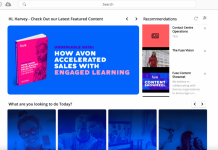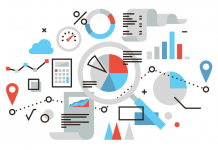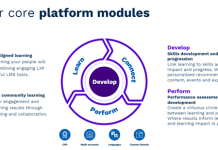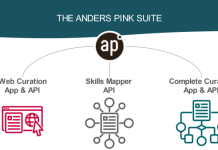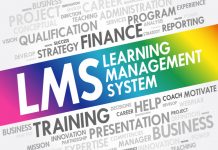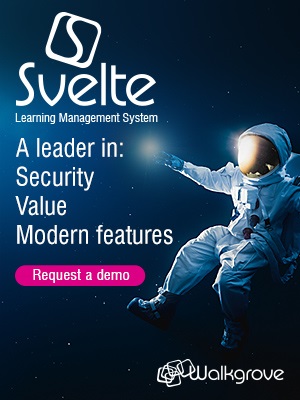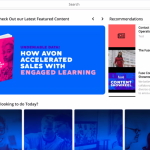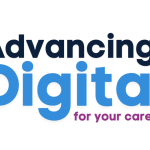In David’s review of the Lifeed learning platform, he found an innovative solution that’s much more than your typical LMS. It’s a tool for engaging & empowering employees, deploying blended learning programmes, and managing an organisation through a crisis or significant change.
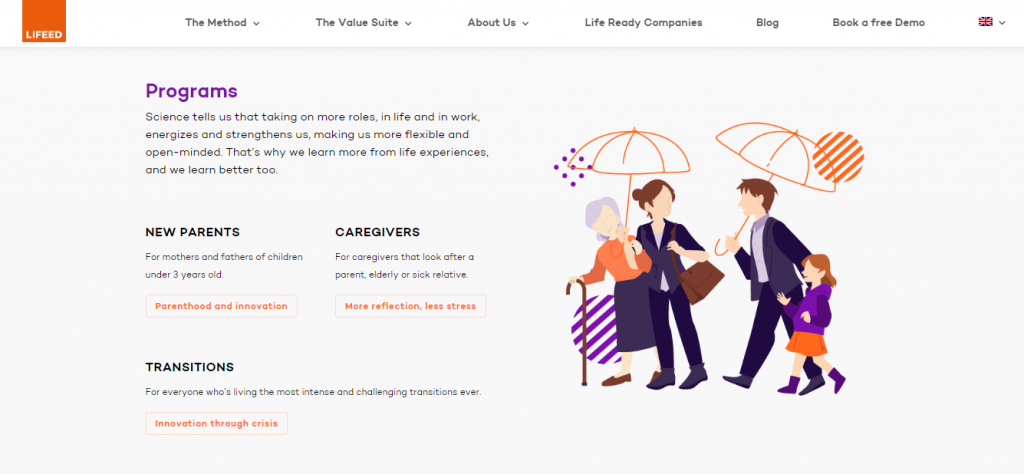
I spend a lot of my time looking at and exploring LMS, and I am always interested in new products, ideas and innovation. I was lucky enough to come across the Lifeed platform and spend several hours being shown around what this very innovative solution is all about.
Well, it is an LMS that offers blended learning programs: it’s a nice elegant one that is well designed and easy and intuitive to use. But what it is designed to deliver is much more interesting and exciting in itself, and makes this much more than an LMS per se. No off the shelf learning platform we have reviewed is capable of delivering the Lifeed approach to learning.
Managing Employees Through Impactful Life Changes
So, what is Lifeed? Well to a company interested in Lifeed, it is best described as a highly evolved integrated learning platform that organisations can use to increase employee engagement and empower their employees through impactful life changes.
Yes, That is quite a description, so let us see what we mean by this and how it takes us into the world of generative leadership.
But first, it is important to note in conducting our review of Lifeed we saw, and were very impressed by, some recent rapid development work from the experts in Lifeed and their academic research partners, including (NICA at the University of Newcastle) in producing a learning framework for managing change (highly impactful life changes) caused by crisis.
And of course, the current crisis is Covid-19.

The Lifeed solution is well placed to do this as it is built out on the premise of employers supporting and empowering employees through what they describe as “life transitions”.
By this Lifeed is focusing on those big events in a person’s life that will also profoundly impact upon their work-life balance: becoming a parent and becoming a carer are already existing Lifeed learning frameworks and more will develop over time, but the sheer effort and expertise in evolving the Lifeed model to address a crisis due to what Lifeed calls “an impactful transition” (i.e. Covid-19) is very impressive indeed.
So, we now use the term ‘framework‘ deliberately as the framework encompasses the research proven approach from Lifeed that is then configured and customised to a specific organisational requirement.
Since 2015, the Lifeed team has already built out two very sophisticated, yet hugely approachable and accessible digital learning pathways using evidenced-based frameworks that are tailored to specific life transitions.
They have been getting excellent results where they have been deployed in various organisations as digital learning programmes to engage staff, improve soft skills, and address impactful life changes – and the evidence that this approach works is absolutely compelling[1].
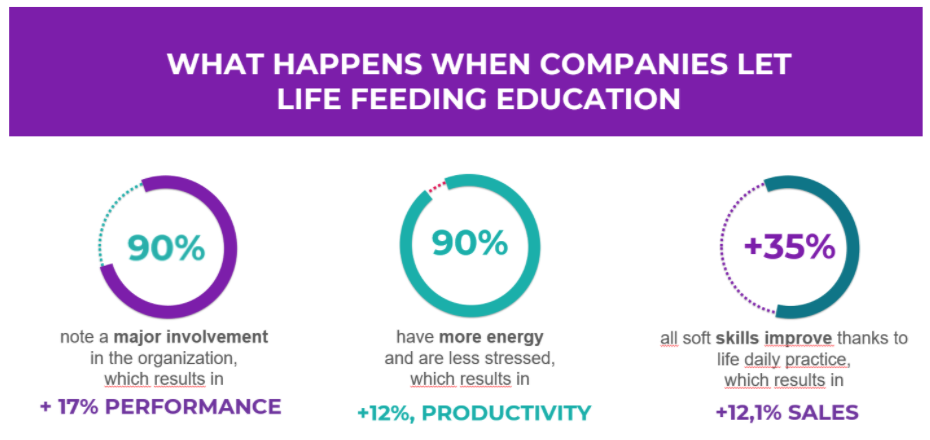
(Sources: People engagement: Gallup research, Jim Harter e Annamarie Mann; Michael Gretczko, Deloitte. Wellbeing: Oswald, A J, E Proto e D Sgroi (2015), “Happiness and Productivity”, EU-OSHA, agenzia d’informazione dell’Unione Europea nel campo della sicurezza e della salute sul lavoro. Formazione: María F. Prada, Graciana Rucci, Sergio Urzúa – caso studio su una delle più grosse aziende di retail in America Latina)
The pathways are generating large amounts of learning data that are vital in providing evidence to the efficacy of the Lifeed approach, both through learner engagement and giving the organisations using Lifeed actionable insights into learners’ performances and feelings.
It made sense to use this approach to support individuals in an organisation that is changing dramatically as a result of a crisis – notably the coronavirus pandemic.
So quite what is Lifeed doing that is so interesting and so incredibly useful for an organisation in these difficult times?
Managed Service, Tailoring Content to Your Context
Lifeed offers a managed service solution for the organisation with its experts tailoring content to the organisational context, and the Lifeed customer care team supporting the organisation when deploying Lifeed.
These are not short-term hits but sophisticated 3-month programmes that an employee works through, ideally completing a module per week.
The modules follow an exacting pedagogical approach, which is designed to engage with the employee and allow them to reflect on what is happening by keeping a concise digital diary.
This helps deal with change and then progress towards the new ways of working and self-management that they themselves have influenced and formulated as needed to make the change happen.
Lifeed has allowed learners to be empowered and given voice to articulate their experiences in a carefully controlled environment where they remain anonymous. The company or organisation is expected to respond to what emerges and provide answers, additional support and accountability.
Life transitions or crisis driven change are in effect being mediated by both parties.
The employee experience
So, what does the learning journey look like?
Lifeed Transitions (the programme that strengthens change management skills for people hit by a crisis) is made up of 9 modules that make up a 3-month course, and they are broadly divided into 3 stages.
Each module offers digital learning content and real life missions where you can hone your soft skills throughout everyday life. This continuous learning approach means that users are getting constant feedback and become more aware of the skills they are using on a daily basis.
The first 3 modules are about letting go of the old habits and routines, and recognising the need to change.
The next tranche is described as the neutral zone where the individual is encouraged to think how to rebuild and adopt new habits and patterns, and importantly – understand why this is required, then learn new skills as part of the pathway.
The final section of 3 modules reflects the new beginning necessary, and individuals commit to implementing the changes required with tools and techniques, but above all – the ability of the individual to give voice to their ideas, frustrations, sense of loss and more.
Continuous Learning Aligned to Real-Life Work & Needs
The continuous learning approach can be seen as guided and supportive, and in many ways incorporates an intense level of practicality as questions are answered by undertaking daily work or life tasks. Lifeed is smart enough to build in scheduling to support learners to get these activities done.
This practical feedback loop can then be paired with specific competencies, and skills required to address these are then identifiable.
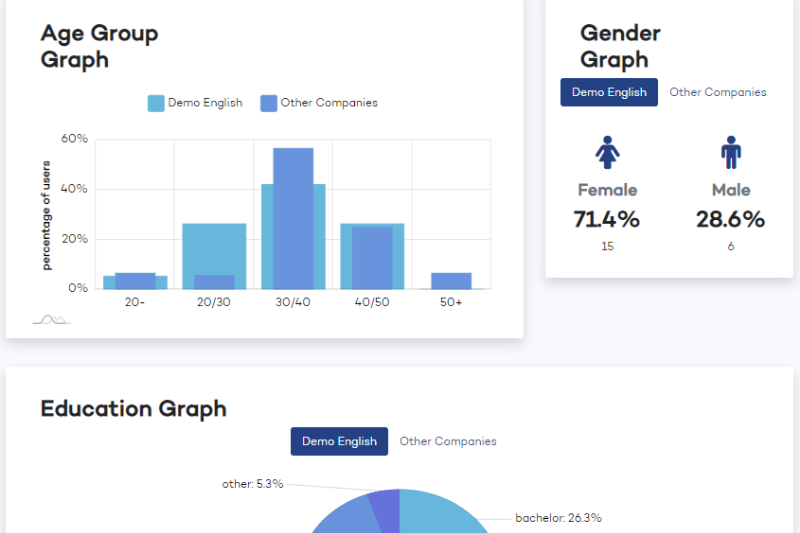
While the approach is sophisticated, the platform has enough well designed support features to manage learners through the journey and the contextualisation undertaken by the Lifeed team of the framework to the organisation in creating the interactions is beautifully designed to be engaging and accessible.
This is not an intimidating platform, but rather a supportive one and the care taken in the design process is evident in all aspects of Lifeed.
Module 2 includes the “corporate room” a digital area with strong access control and it is designed to allow learners to post their feelings, thoughts, ideas, and concerns anonymously. These are then picked up by the organisation (HR or others) and responses proffered. Only certain permitted individuals in the organisation are given permissions to read the postings.
If you are reading this review as a learner (or considering the solution from the learner’s perspective) Lifeed takes learner confidentiality seriously, and learners have a high level of control as to how their input is evaluated and analysed.
Semantic analysis and AI
The reason for this approach is very understandable and indeed the value to an organisation is the ability to see what is happening in the organisation at an aggregated level, and this is where Lifeed gets powerful.
Lifeed uses semantic analysis that will be increasingly powered by AI (machine learning) to explore patterns of feedback.
For the leader, generative leadership
The outcome for the organisation is the ability to develop a new style of leadership, described as Generative Leadership[2], which can be made to work at team level as it is designed.
Generative leadership is about creating and using the interactions between team leaders and team members with a focus towards engineering and building organisations as communities for learning.
This means the role of the generative leader is both to lead and also take on accountability for the collective learning of their component of the organisation. While we have talked in our review of giving employees agency and empowerment, the role of the leader is equally interesting and important.
They have a role to both address and also to challenge how their employees are viewing the organisation and address personal biases or influences that may impact their thinking. This process is designed to highlight any potentially limiting beliefs or perceptions to then support impactful transitions (crisis-driven change) in the organisation.
So Lifeed is a multi-faceted learning solution for the management of change and it has a few other tools such as MultiMe, developed in collaboration with Kellogg School of Management. These support people in understanding that having many roles also means that we need many skills that we can use interchangeably, and a 360 appraisal tool developed with Ca Foscari looking at ESCI scores (Emotional and Social Competency Inventory) – a 360 degree survey that is designed to assess competencies.
Summary
So, in summary Lifeed is a sophisticated integrated learning platform blending digital study with real life experience.
It’s based on academic research designed to enable an organisation to manage employees through significant change and turn it into an impactful transition using generative leadership.
In this review, we have seen and understood how this approach will work in an organisation that is changing due to a crisis such as the one created by Covid-19, and we have understood how valuable and effective this approach can be.
If your organisation is faced with challenges like these, then a demo of Lifeed is certainly recommended.
Learn more about this excellent platform on the Lifeed website.
Sources:
[1] https://lifeed.io/en/the-method/life-based-learning/
[2] https://www.whatisdialogue.com/4-cs-generative-leadership/#:~:text=Generative%20leadership%20focuses%20on%20the,collective%20learning%20of%20their%20organization.


